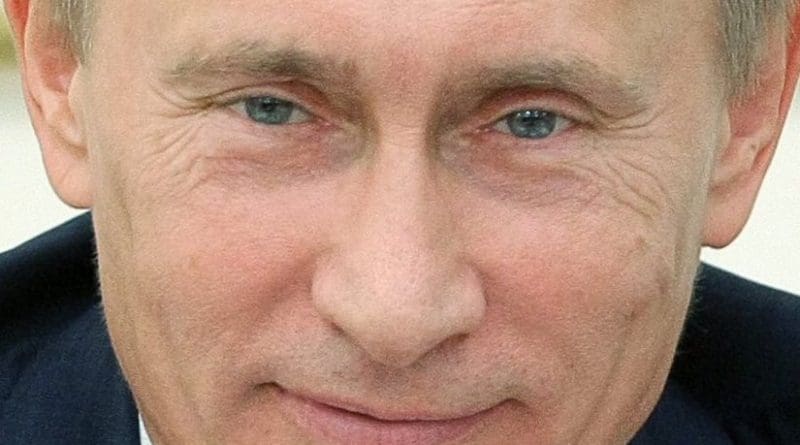‘The Bell’ Traces Russia’s ‘Private Army For The President’ Back To 2004 – OpEd
By Paul Goble
Three journalists for The Bell trace the murky history of Russia’s private military companies, their relations with the Kremlin and the Russian military, and their various deployments and costs back to events in 2004 when tree Russian soldiers were caught in the course of liquidating a Chechen militant in Qatar.
Because the men were uniformed soldiers of the Russian Federation, their capture triggered an international scandal and their release was secured only after the very public intervention of Vladimir Putin, something he clearly did not want to have to do again and thus set in train the creation and rise of the private military companies.
Irina Malkova, Anton Bayev and Anastasiya Yakoreva pull together what is known about this nearly two decades-long history and the role of Yevgeny Prigozhin, known as “the cook” for his role as a supplier of food to schools, the military and the elite, in the rise of the Vagner private military company (thebell.io/41889-2/).
After 2004 when Putin was embarrassed the idea of creating such forces to allow Russia to act abroad in deniable ways was discussed in military circles, and th e use of military retirees in such “private” units received support from General Nikolay Makarov, then chief of the Russian General Staff.
But the breakthrough appears to have come in June 2010 when Eben Barlow, a retired South African general, made a presentation on the growing role of private military formations in Africa to a military roundtable in St. Petersburg. In addition to speaking about such groups in Africa, he made specific proposals on how Russia could create its own.
At that time, The Bell journalists say, the main debate was whether such sgtructures should be legal given that some siloviki were “categorically against” the appearance of such groups given the difficulties Moscow could expect to have in controlling their operations and ensuring security.
This was four years before Moscow moved into Ukraine, and so most of the focus in the discussions at that time was aabout how to use “’illegals’” for operations where maintaining deniability was essential, the journalists continue. In 2012, Valery Gerasimov, who replaced Makarov as chief of the general staff, supported the idea and discussed it with Putin.
Putin’s friend, Yevgeny Prigozhin, was brought into these discussions early on. He was close to Putin but not so close that that could present a problem, The Bell says. He began to be involved at least as early as 2011 and was certainly part of the general operation of Vagner and other groups, despite his denials, in the years after that.
In 2013, a year before the Ukrainian moves, the private military companies in Russia took shape, and Prigozhin was heavily involved, although most of this activity took place out of public view. Indeed, the Vagner group was mentioned in the Russian and international media only in the fall of 2015.
The role of private military companies was quite restricted in the Crimean operation but rather larger in the Donbass. Even there, however, these units took a back seat to other groups that the Russian military organized there or brought in from Russia itself. When the initial phase of that operation wound down, Vagner and other private military companies were sent to Syria.
There, these groups achieved their greatest successes and their greatest failues. They were the land forces in Syria Moscow said it didn’t have; and they were responsible for many of the victories ascribed to the Asad government. But they had their greatest failure when they were attacked by US forces and Moscow was unable to come to their defense as some had hoped.
Prigozhin faced real problems in convincing Putin that what had happened was an accident and that measures had been taken to ensure it would not happen again. He must have succeeded because Russian private military companies connected to Prigozhin have since been used throughout Africa and now apparently in Venezuela.
All these operations beginning with Syria have been very expensive and have involved as many as 10,000 mercenaries. The Bell article provides details that give credence to its history of these units; it will certainly be the basis for all future studies of what have become Vladimir Putin’s “personal private army.”

